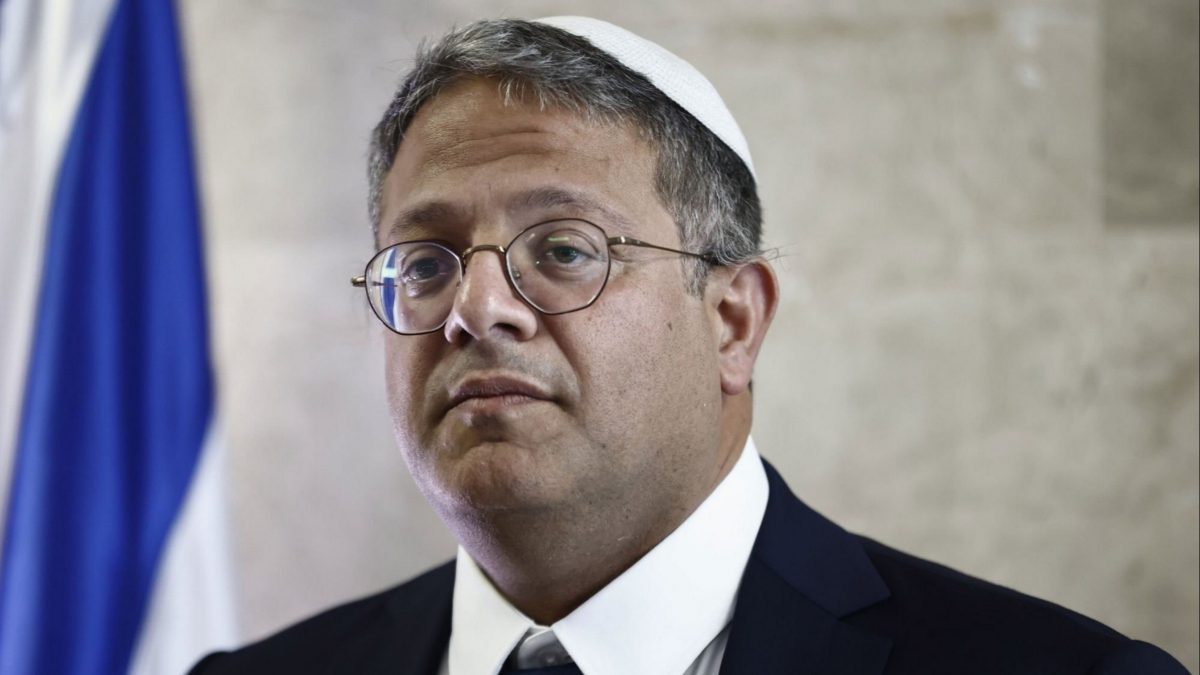JERUSALEM, (Reuters) – Israel’s new far-right national security minister Itamar Ben-Gvir briefly visited Al-Aqsa mosque compound in Jerusalem today, a site also revered by Jews, prompting fierce condemnation from the Palestinians and several Arab countries.
“The Temple Mount is open to all,” Ben-Gvir said on Twitter, using the Jewish name for the site. Video footage showed him strolling at the periphery of the compound, surrounded by a heavy security detail and flanked by a fellow Orthodox Jew.
An Israeli official said the 15-minute visit by Ben-Gvir, a top member of Prime Minister Benjamin Netanyahu’s nationalist-religious cabinet, complied with a so-called status-quo arrangement dating back decades that allows non-Muslims to visit on condition they do not pray. He did not approach the mosque.
Although the visit passed without incident, it risks stoking tensions with Palestinians that have already been running high after an upsurge in violence in the occupied West Bank in the past year.
Palestinian Prime Minister Mohammad Shtayyeh called on Palestinians to “confront the raids into Al Aqsa mosque”. He accused Ben-Gvir of staging the visit as part of a bid to turn the shrine “into a Jewish temple”.
Israel denies having such designs. Ben-Gvir once advocated ending a ban on Jewish prayer at the site, but has been more non-committal on the issue since aligning with Netanyahu. Other members of his Jewish Power party still advocate such a move.
The rise of Ben-Gvir in Netanyahu’s government, one of the most right-wing in Israel’s history, has deepened Palestinian anger about their long-failed efforts to secure a state.
Hours before the visit, Israeli troops shot dead a Palestinian teenager in a clash in nearby Bethlehem, medical officials and witnesses said, latest in a growing death toll in the West Bank. Israel’s army said troops fired on Palestinians who threw improvised explosives, rocks and firebombs at them.
A spokesman for Hamas, a Palestinian Islamist group that rejects coexistence with Israel and which controls Gaza, said of Ben-Gvir’s visit: “A continuation of this behaviour will bring all parties closer to a big clash.”
Al Aqsa is a symbol for Palestinian hopes of securing a state, a goal that looks ever bleaker with Ben-Gvir and other far-right allies now in Netanyahu’s government.
U.S. ambassador to Israel, Thomas Nides, “has been very clear in conversations with the Israeli government on the issue of preserving the status quo in Jerusalem’s holy sites”, the embassy said in a statement, adding that “actions that prevent that are unacceptable” without elaborating.
Jordan, the custodian of Al Aqsa and whose peace deal with Israel is unpopular at home, criticised the visit, saying it had violated international law and “the historic and legal status quo in Jerusalem”.
Egypt and United Arab Emirates, which are among the few Arab states to have recognised Israel, also condemned the visit. Saudi Arabia, with which Netanyahu wants to forge a peace deal, also criticised Ben Gvir’s action.
The Al Aqsa compound, known to Muslims as the Noble Sanctuary, is Islam’s third-holiest site. It is also Judaism’s most sacred site, a vestige of two ancient temples of the faith.
On Tuesday, pious Jews fasted to commemorate a Babylonian siege on the first of those temples, in the 6th century BC.
Ben-Gvir oversees Israeli police who are formally tasked with enforcing the ban on Jewish prayer at the compound.
Israel deems all of Jerusalem its indivisible capital – a status not recognised internationally. Palestinians want East Jerusalem, where the compound is located, as capital of a future state also taking in the West Bank and Gaza Strip.
“If Hamas thinks that it can deter me with threats, it should understand that times have changed,” Ben-Gvir said on Twitter. “There is a government in Jerusalem!”
Netanyahu, now in his sixth term as premier, has pledged to preserve the “status quo” around holy sites. Ben-Gvir said on Tuesday that “freedom of movement” would be upheld at the Jerusalem compound, without any mention of freedom of worship.





